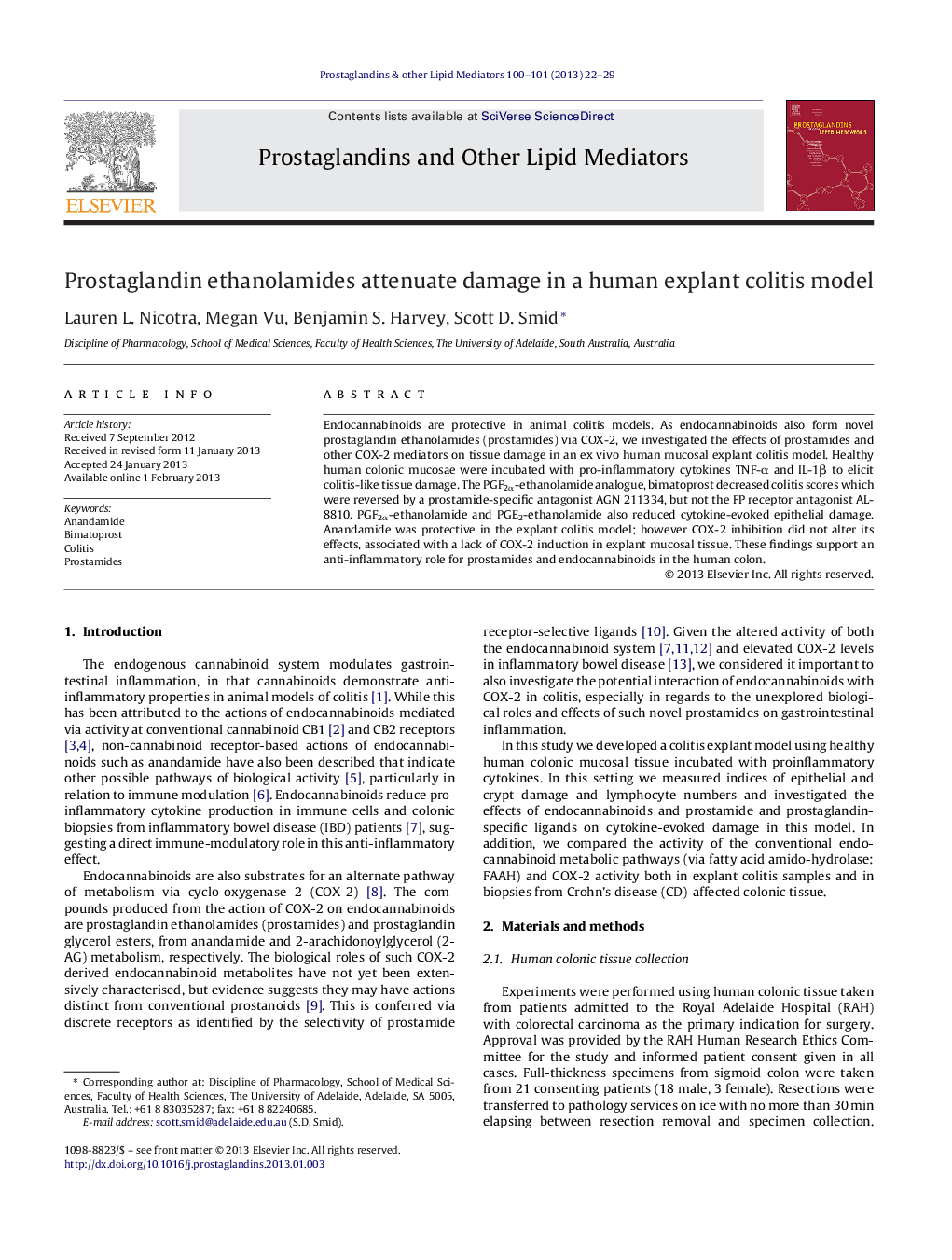| کد مقاله | کد نشریه | سال انتشار | مقاله انگلیسی | نسخه تمام متن |
|---|---|---|---|---|
| 2019715 | 1542222 | 2013 | 8 صفحه PDF | دانلود رایگان |

Endocannabinoids are protective in animal colitis models. As endocannabinoids also form novel prostaglandin ethanolamides (prostamides) via COX-2, we investigated the effects of prostamides and other COX-2 mediators on tissue damage in an ex vivo human mucosal explant colitis model. Healthy human colonic mucosae were incubated with pro-inflammatory cytokines TNF-α and IL-1β to elicit colitis-like tissue damage. The PGF2α-ethanolamide analogue, bimatoprost decreased colitis scores which were reversed by a prostamide-specific antagonist AGN 211334, but not the FP receptor antagonist AL-8810. PGF2α-ethanolamide and PGE2-ethanolamide also reduced cytokine-evoked epithelial damage. Anandamide was protective in the explant colitis model; however COX-2 inhibition did not alter its effects, associated with a lack of COX-2 induction in explant mucosal tissue. These findings support an anti-inflammatory role for prostamides and endocannabinoids in the human colon.
► Cytokines evoke colitis-like mucosal damage in human colonic explant tissue.
► Both exogenous and endogenous prostamides inhibit mucosal damage.
► The synthetic prostamide bimatoprost reversibly inhibited mucosal damage.
► Anandamide was also protective, but not attributable to COX-2 metabolites.
► Prostamides and endocannabinoids are anti-inflammatory in the human colon.
Journal: Prostaglandins & Other Lipid Mediators - Volumes 100–101, January–March 2013, Pages 22–29